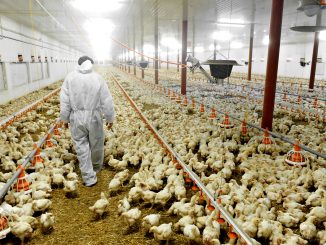“The Common Agricultural Policy is outdated and failing to stimulate innovation or greening,” Dutch MEP Gerben-Jan Gerbrandy told the budgetary control committee (CONT) last Tuesday. As well as sitting on CONT, he is also the deputy chair of the European Parliament’s environment committee (ENVI), for which he prepared a report on the need to protect biodiversity at an EU level.

Speaking to the Agricultural and Rural Convention last week, Gerbrandy points to reports from the European Court of Auditors, year after year, that are critical of a lack of innovation and total dependency on subsidy. This dependency is so great that the mainstream agricultural players are not over concerned how it is packaged or labelled, “…so long as money flows into their pockets.”
If projects had to include their environmental cost as part of the budget, Gerbrandy argues, the environment would be taken more seriously. He calls this budgetary brake on environmental damage the No Net Loss Principle: “There are models which have been available for years,” he observes. “We just need to implement those parts that we can apply now, instead of just talking about it.”
Is it complicated? Not really, retorts Gerbrandy. “I can explain it to a five-year-old. We need to stop destroying nature.” This is more important than scoring points.
As well as shared transboundary environmental needs, such as clean water, clean air or pollenation, there are elements of the environment that need protecting at a European level because of their intrinsic value, even if they are limited in extent, such as populations of very rare flora or fauna.
Another overlooked resource is soil fertility: while not a transboundary issue, soil also needs protection at a European level: “…even if there is not a political appetite for it, that doesn’t mean it’s not important.” Add to that the potential conflicts of interests on the agriculture committee (AGRI) and the obstacles become huge.
“If a chemical plant owner was to sit on the environment committee and make all sorts of arguments in favour of the chemical industry, everyone would say there was a conflict of interest. But in agriculture, being in the industry is almost a requirement for the job. It’s a very strange reasoning.”
And what of farmers who complain about the cost of measures to protect the environment? “Turn that round and ask how many farmers can afford not to protect the environment?” Gerbrandy’s report last week on biodiversity would suggest that more farmers need to look carefully at what that really means.





